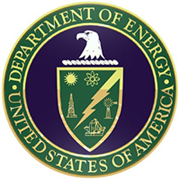The DOE Fellows Program Lecture Series at the Applied Research Center had the honor of hosting a presentation by Dr. Donald Reed on October 20, 2015, during his visit to Florida International University (FIU). Dr. Donald Reed is the current team leader for the Actinide Chemistry and Repository Science Program at Los Alamos National Laboratory. Dr. Reed’s repository science investigations are meant to support the long-term safety for the Waste Isolation Piolet Plant (WIPP) transuranic nuclear repository. The Actinide Chemistry and Repository Science team that he manages has published several papers and internal reports and is very active in joint international programs with German labs and the Nuclear Energy Agency in the development and promotion of salt-based repository concepts. While working at Los Alamos, he has actively published in the fields of applied radiation chemistry, actinide environmental chemistry and subsurface science, and microbial effects on actinide speciation and mobility. The DOE Fellows also had the pleasure of having Dr. Reed act as one of this year’s panel of judges for the eighth annual DOE Fellows Poster Exhibition and Competition.
Dr. Reed also participated in a discussion with ARC staff on the research conducted by ARC for the Department of Energy (DOE) sites. Dr. Reed and ARC staff both expressed interest in the collaboration to advance the science of WIPP research, which is a high priority mission for DOE Office of Environmental Management. This research will advance science in high ionic strength systems, which have not been significantly researched in the past. The first step in this collaboration is to create a task focusing on the sorption of actinides as a function of ionic strength, pH, temperature and the host material. The initial phase of experiments will be conducted at LANL facilities. Some of the experimental protocols will be transferred to ARC to allow for conducting studies in ARC’s laboratories. The benefit of this collaboration to DOE EM and WIPP will be an improved understanding of the radionuclides sorptive behavior, helping to interpret site-specific data; the relationship with FIU will also lead to joint peer-review publications on the topic.
